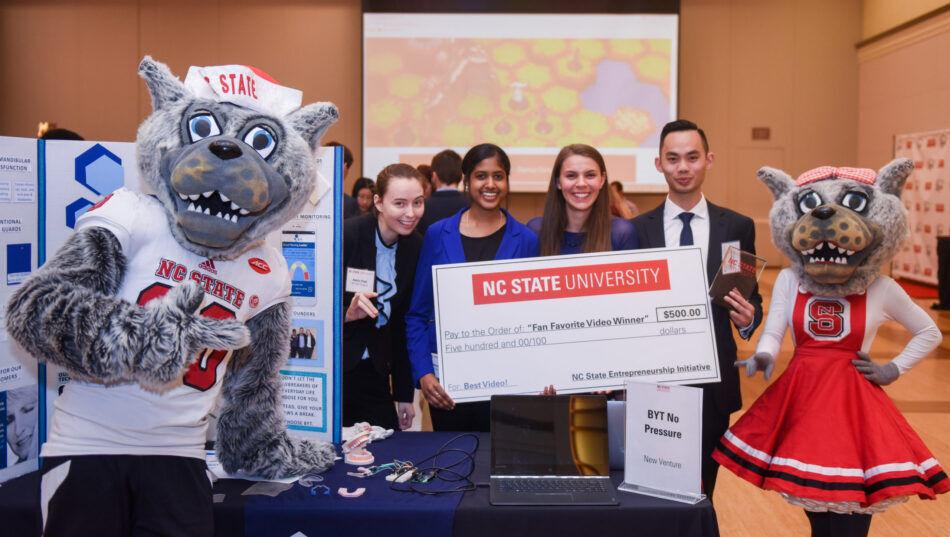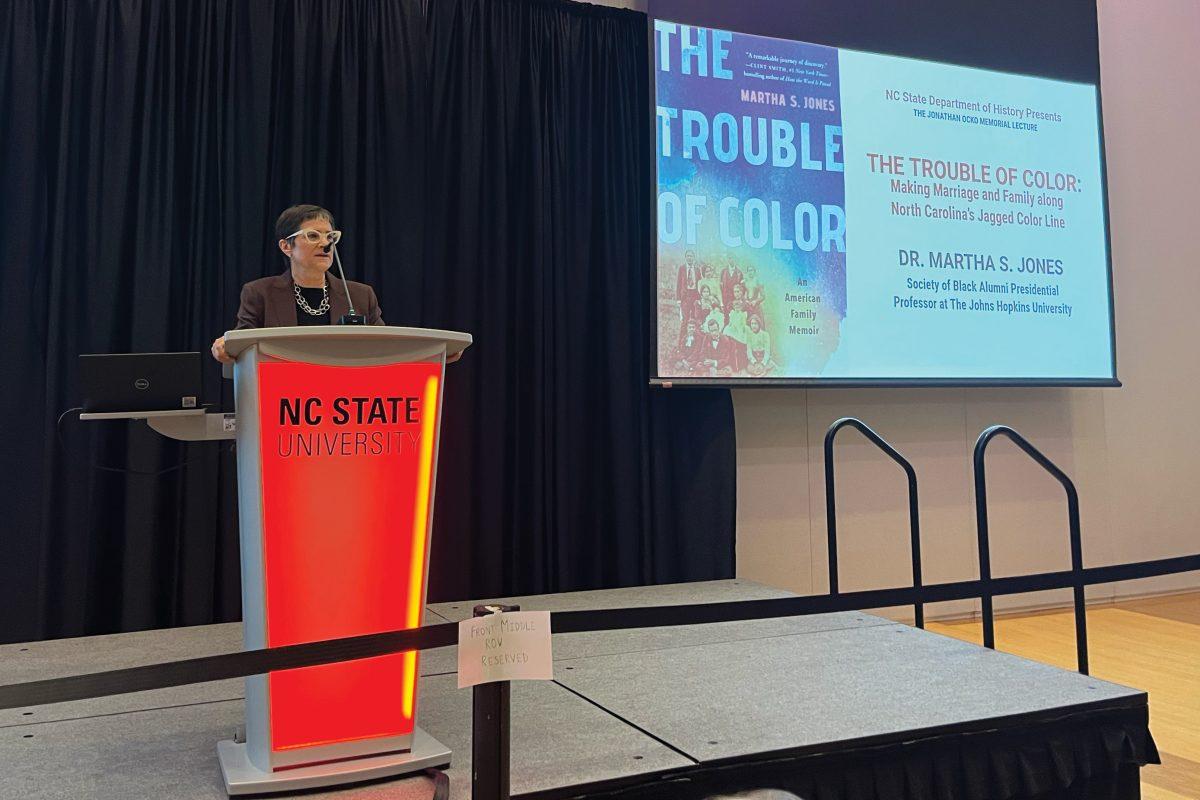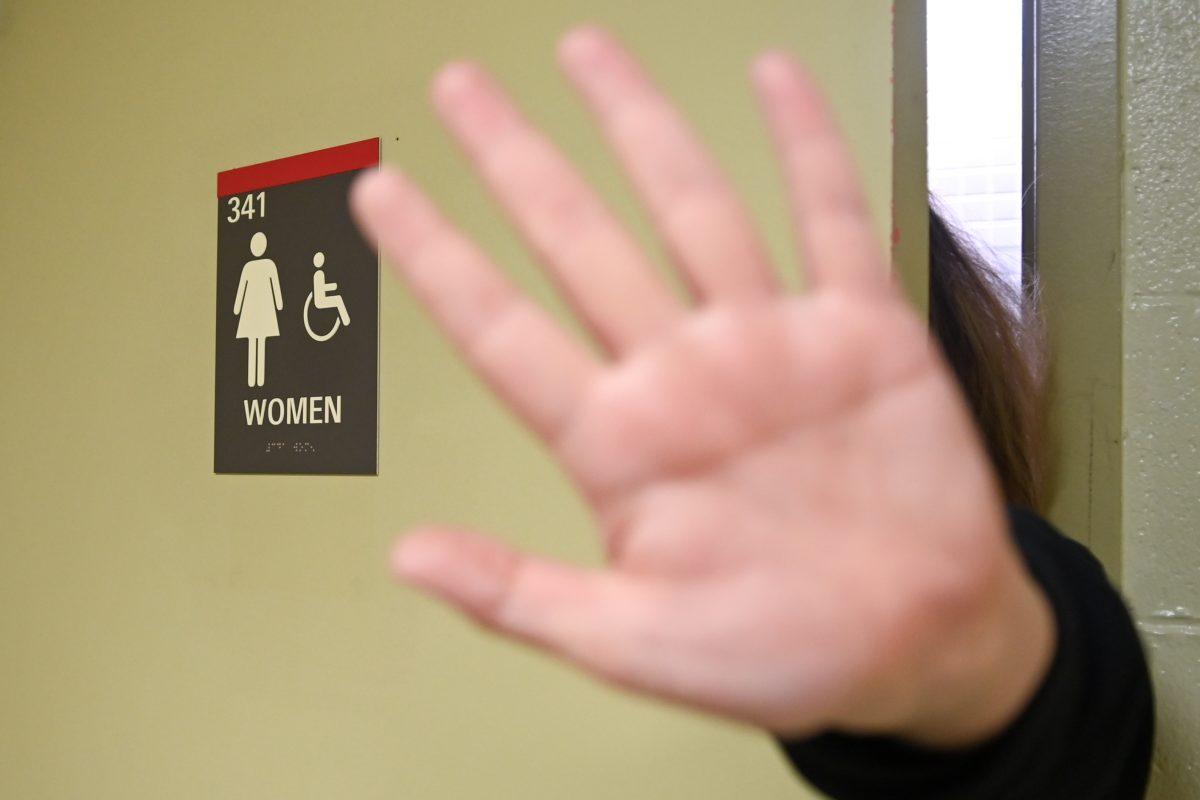The eGames, NC State’s annual startup competition, has awarded over $60,000 in prize money to NC State undergraduate and graduate students this spring semester. The competition features two tracks: a student track and the Daugherty track, which features competitors who have licensed NC State intellectual property in the last three years.
The student track is split into two categories, “Think” and “Do.” The “Think” category is for businesses or ideas in the early stages of development, and the “Do” category is for established startups. The winning teams also had to undergo two rounds of judging across many categories like design and market feasibility.
Vertibra, a startup which created a bra that provides haptic feedback to the wearer to realign their posture, won first place in the “Think” category and was awarded $9,000.
Daniel Olson, a graduate student studying biomedical engineering, said the Vertibra team entered the eGames in order to win money to fund the prototype for the product.
“The reason we decided to enter the eGames is because we’re all broke college students and we realized, as we’re getting into the stages of early prototyping, that a lot of things cost a lot of money,” Olson said. “That includes being able to afford raw materials, such as the conductive inks we’re planning on using, and we’re hoping to use it to hire people to test our product for us.”
Micah Ulrich, a graduate student in mechanical engineering, said he will use the money his team, Flux Hybrids, won for prototyping and further testing of the product. Flux Hybrids is a company developing a hybrid conversion that can convert any automatic transmission vehicle into a plug-in hybrid.
“A lot of [the prize money] is going to go to upgrading our prototype,” Ulrich said. “Right now, we are in talks with the city of Raleigh and city of Durham about them wanting to test out the technology, so it could help offset the costs of that for those potential customers or for improving our system even more. Right now, our first prototype cuts your fuel usage in half and reduces maintenance and carbon emissions. We can improve those numbers even more, which just makes it a better selling point.”
Dakota Batch and J’den Williams, graduate students in textile technology and management, won $12,500 in award money for their company Extruo. Extruo creates wearable technology for track and field athletes and coaches to be able to receive in-depth data on athlete performance.
Batch said she was grateful to receive helpful feedback from the eGames judges.
“I thought this would be a great opportunity to put forth the product that we have and put it in front of an audience that we wouldn’t ordinarily have access to,” Batch said. “It really helped us refine our product off the feedback we received throughout the various rounds, and it really helped us get down to creating the most viable product that still meets the needs of our customers.”
Timothy McKay, a third-year studying business administration, also said he was grateful for the experience that the competition provided him.
“It was really nice how they made me come up with a pitch and a business plan,” McKay said. “I feel like if you have those two things you can go far. Starting there allowed me to flesh out all of my ideas, and it was really helpful. I got a lot of great feedback from the competition. I’m going to use that feedback and tweak the idea a little bit.”
McKay’s company, MacHealth, won $2,000 and is creating a software to reduce the amount of medical billing errors in doctors’ offices.
Elijah Moskowitz, a graduate student in biomanufacturing, and his team won $7,000, which they will put towards further research in developing their product. Moskowitz and his teammates at DEVO are developing a key ingredient in gene therapies.
“We had the opportunity to use a patented technology that was invented at NC State in the chemical engineering department,” Moskowitz said. “Our product is a bacterial strain that can produce plasma DNA at a much higher rate than is currently done in the industry. Plasma DNA is being used to produce gene therapies which are sort of the only hope for people who have really devastating genetic diseases. It’s really difficult to produce plasma DNA. We’re trying to provide a better way to produce it.”
Moskowitz said his team is planning to put the prize money towards research and development of the technology needed to create the plasma DNA.
“We need some tests that will probably take a few months and will cost some money,” Moskowitz said. “Also, having an operator or researcher do it. That’s one of our ideas — to pay an undergrad for the summer to work on this.”
The eGames was just one of the entrepreneurial competitions held this year at the University. NC State also hosted the ACC Inventure Prize Competition, an entrepreneurial competition between some of the most promising entrepreneurs at all 15 ACC schools.
More information about the eGames, the full list of winners and other entrepreneurial competitions can be found on the NC State Entrepreneurship website.












